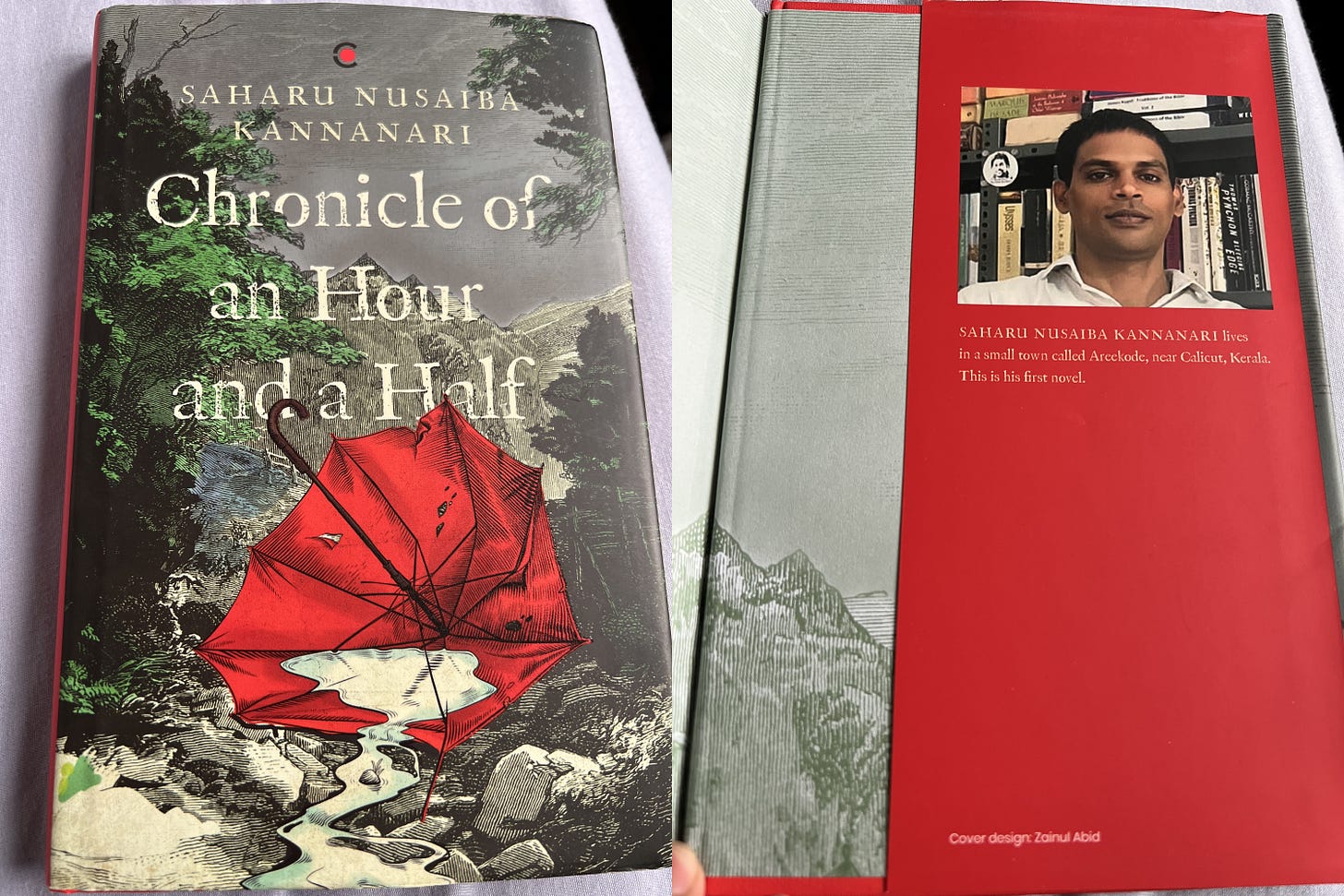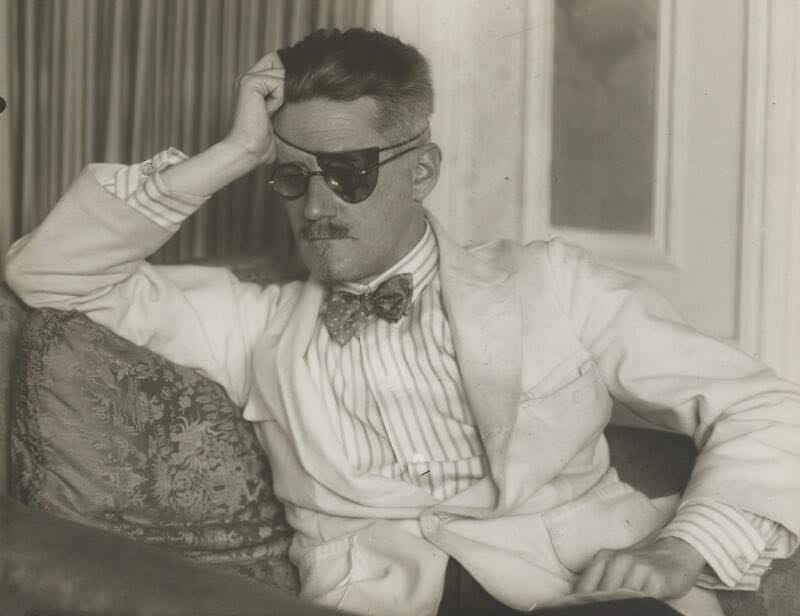Chapter 2: Chronicle of an Hour and a Half
Book review: Chronicle of an Hour and a Half, A poem from Devotions, Han Kang's interview and James Joyce's birth annivesary,
Book Review: Chronicle of an Hour and a Half
Even then I was confused about this strange man, my life to come, the responsbility of having to give birth to children soon and the liability of having to love more than myself because I was only nineteen and I wasn't finished loving myself enough.
I was recently in India when I stumbled upon a tweet about the book. It was popular on Goodreads.
The debut novel by Sahuru Nusaiba Kannari is set in a village in Kerala, where a series of serious events unfold over ninety minutes. The villagers become enraged by the immoral affair between the married Reyhana and the bachelor Burhan, who is fifteen years younger than her.
The novel employs a first-person narrative through multiple characters, capturing the perspectives of various men and women in the village.
The novel begins with the frustrated Nabeesumma’s (Burhan's mother) narration about her husband.
He gave me five children and then he rested, like God after Creation.
The entire family survives on the mother’s single wage, while the disinterested children and the husband do not contribute financially to the household.
The next chapter shifts to Reyhana’s perspective, where she reflects on her husband’s absence while he works in the Middle East.
My husband gave me everything, including his kidney.
The oppressive nature of marriages and the lack of agency for women are well known in Indian society, reminding us how lives are robbed of meaning.
Each chapter is titled after a character’s name, giving the reader a clear sense of where the monologue takes place. The novel is structured like a thriller, featuring visually stunning descriptions of nature - the beauty of the Western Ghats contrasted with the ugliness of sexually repressed, jealous, and insecure men, reflecting the broader flaws of society.
The suffering of Nabeesumma and the lovelessness in Reyhana’s marriage flow throughout the novel, like a perennial river that feeds the village.
The author's command over the language brings the quality of writing, one who speaks Malayalam will appreciate the coinage of the phrase - restless tongue, indicating talkative or gossiper.
The characters’ reflections highlight the divide between society’s regressive norms and its expectations of women. The conversation of the sexual repressiveness is open yet unpreachy. Male ego, family honor, and the mob’s animalistic pride brutally expose the darker side of human nature. This theme reminded me of the following quote:
Nobody’s Free Until Everybody’s Free
The unfolding events mirror the inevitable tragedy in Chronicle of a Death Foretold by Gabriel García Márquez, while the novel’s shifting perspectives evoke the fragmented storytelling of Wandering Rocks in Ulysses.
The children participate in the mob like a festive activity plants a question what’s the hope for future? The novel effectively illustrates the patriarchal structure of society, where men hold visible power while women sustain daily life in more subtle, unacknowledged ways. A disturbing novel that questions nature of human conditions and human freedom.
The sex has always been taboo topic, the essential missing elements of initimacy in the marriage makes one ponder what's the point of marriage for the individual?
The novel ends with Nabeesumma's voice followed by Reyhana's voice in the subsequent chapter recounting their emotions after Burhan's death and a particular monsoon night.
Through vivid storytelling and compelling character perspectives, it exposes uncomfortable truths about human nature, making it one of the most compelling novels I have read.
A Poem
Of course for each of us, there is a daily life. Let us live it, gesture by gesture. When we cut the ripe melon, should we not give it thanks? And should we not thank the knife also? We donot live in a simple world.
- Devotions, Mary Oliver
Interview: I want to be Hopeful, Han Kang
Yes, I wrote about massacres and human debasement and atrocities, but I wanted to write about love. As I get older, as time goes by, I feel I’m moving towards light.
The Guardian recently published an interview with Han Kang, the recipient of the 2024 Nobel Prize in Literature.
One of the most common dreams among book lovers is to run a café-bookshop - a romanticized, almost clichéd vision of the literary life. Murakami, for instance, ran a jazz bar before becoming a writer. Han Kang, as it turns out, operates a tiny 10-square-meter bookshop, where she leaves personal recommendations for Korean books, each accompanied by a handwritten note. After she won the Nobel, the crowd gathered frequently, the shop’s popularity surged, and it is now managed by professional manager.
The interview delves into Han’s literary world - what her writing orbits around and how she sees the act of writing itself. Her reflections echo those of Marcel Proust how writing is suffering.
It’s a brilliant conversation!
James Joyce Birth Annivesary
James Augustine Aloysius Joyce, born on February 2, 1882, was one of the finest experimental modernist writers—haunting and challenging readers for generations.
“One by one they were all becoming shades. Better pass boldly into that other world, in the full glory of some passion, than fade and wither dismally with age.”
I'm re-reading Dubliners and appreciating the simplicity of Joyce's writing. Expect notes and a review in a future chapter!



